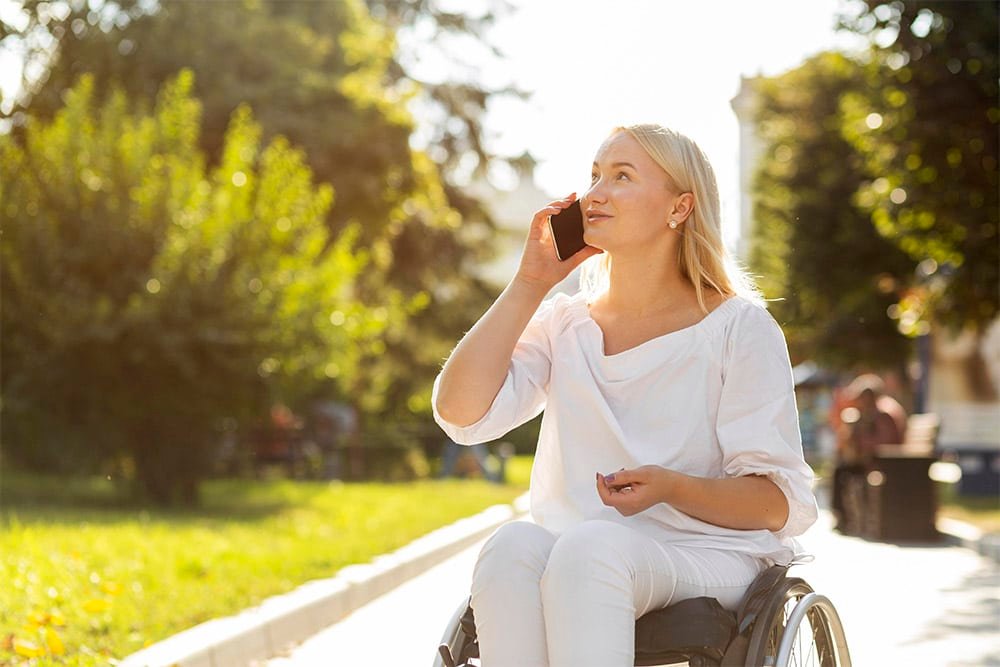
Empowering Independence: The Life-Changing Impact of Mobility on Mental Health
- —
The impact of mobility on mental health is profound; mobility and independence are not only key to physical well-being but also play a vital role in mental health. When individuals can move freely and carry out daily tasks independently, it significantly boosts their self-esteem and sense of self-worth. This freedom reduces stress and anxiety, offering a greater sense of purpose and belonging. The ability to stay active and engaged in life promotes emotional balance, leading to a more positive outlook.
For those with limited mobility—whether due to aging, injury, or illness—the mental health impact can be profound. The inability to move as freely can lead to feelings of frustration, isolation, and depression. It’s crucial to prioritize mental health by providing emotional support and mobility aids that restore freedom. These tools empower individuals to regain their independence, helping them to re-engage with daily activities and improve their overall quality of life, both physically and emotionally.

Instruments That Promote an Impact of Mobility on Mental Health
- Wheelchairs & Power Chairs: Provide mobility inside and outside the home.
- Scooters: Help people travel long distances with ease.
- Lift Chairs: Assist in safely standing up and sitting down.
- Hospital Beds: Offer adjustable positions for comfort and ease of movement.
- Walkers & Rollators: Provide stability for walking both indoors and outdoors.
- Ramps & Stairlifts: Enable safe access to different areas of the house.
- Grab Bars & Floor-to-Ceiling Bars: Provide extra support in key areas like bathrooms or bedrooms, helping individuals with transitions and reducing the risk of falls. These aids promote safety and independence by offering stability for daily tasks.
Enhance Daily Living: Activities Made Easier with Mobility Aids
Shopping: Whether you’re heading to the grocery store, the mall, or running errands around town, scooters and wheelchairs offer the convenience and freedom needed to navigate shopping environments with ease. They provide the stability and mobility required to access various locations, allowing individuals to maintain their independence while completing daily tasks

Outdoor Walks: Enjoying nature, visiting parks, or taking a leisurely walk around the neighborhood becomes possible with the support of walkers or power chairs. These mobility aids are designed to offer comfort, safety, and enhanced mobility, making it easier for individuals to explore the outdoors, breathe fresh air, and engage in light exercise, contributing to physical and mental well-being.

Travel: Traveling is made more accessible with the use of scooters and portable ramps, whether for vacations, family visits, or day trips. Mobility devices allow individuals to navigate airports, hotels, or any destination with ease, ensuring that they can experience the joys of travel without limitations. Portable ramps provide access to buildings, vehicles, and other spaces, ensuring seamless movement wherever the journey takes you.

Household Tasks: Mobility aids like lift chairs assist with essential daily activities such as transitioning between sitting and standing. Whether it’s moving from the sofa, dining chair, or bed, lift chairs provide the necessary support to ensure safety and ease. They help individuals maintain independence and confidence while performing routine tasks around the home.

Physical Therapy: Walkers and rollators are crucial tools in rehabilitation exercises. They offer the balance and stability needed for individuals recovering from surgeries, injuries, or those working to regain strength. These aids facilitate safe movement during therapy sessions, helping users improve their physical abilities, maintain mobility, and progress toward greater independence.

At Medfirst Homecare, we are here to support you or your loved ones by providing essential tools for mobility and independence. Our range of high-quality mobility aids helps improve quality of life and fosters a sense of freedom. Our experts are dedicated to guiding you toward the best options, ensuring that each solution is tailored to meet your unique needs and restore confidence in daily activities.
Here you can purchase or rent high-quality home medical equipment. Rentals are ideal for short-term needs, such as recovery from surgery or temporary mobility issues, while purchases are designed for long-term solutions to improve your quality of life and independence.
Explore our customer testimonials
Check all our customer reviews here
Why is mobility important for mental health?
Mobility fosters independence, reducing feelings of helplessness and promoting a sense of control and freedom, which is essential for emotional well-being.
Can lack of mobility lead to mental health issues?
Yes, limited mobility often leads to isolation, depression, and anxiety, affecting overall mental health.
How does mobility improve quality of life?
Being able to move freely enhances participation in social activities, reduces stress, and fosters a positive mindset.
What tools can help regain mobility?
Wheelchairs, scooters, lift chairs, and walkers are all designed to support physical movement and independence.
What is the impact of mobility on self-esteem?
Gaining mobility increases confidence and self-reliance, reducing dependence on others.
Is there a connection between physical and mental health?
Absolutely. Improving physical mobility also boosts emotional well-being by allowing individuals to engage in life more fully.
How can mobility devices help with anxiety?
Mobility aids reduce stress and anxiety by providing freedom of movement, making daily activities more manageable.
Can mobility solutions improve relationships?
Yes, increased mobility leads to more social interaction, which strengthens relationships and reduces isolation.
What are the long-term mental health benefits of mobility aids?
Mobility devices support independence and an active lifestyle, contributing to long-term mental and emotional resilience.
How can mobility improve social interaction?
Mobility tools enable individuals to participate in group activities, fostering social inclusion and mental well-being.
What mental health issues are common with limited mobility?
Depression, anxiety, and loneliness are common mental health challenges faced by individuals with restricted mobility.
Can mobility devices help in recovery from injury or illness?
Yes, mobility aids provide the support needed for rehabilitation, improving both physical and emotional recovery.
How can family members support someone with limited mobility?
By encouraging the use of mobility aids and fostering a positive, supportive environment, family members can improve their loved one’s mental health.
How do mobility aids impact daily routines?
Mobility devices make it easier to accomplish daily tasks independently, reducing frustration and enhancing mood.
Is there a stigma around using mobility aids?
Although there can be stigma, educating others on the benefits of mobility aids can shift perceptions and emphasize their role in improving life quality.
